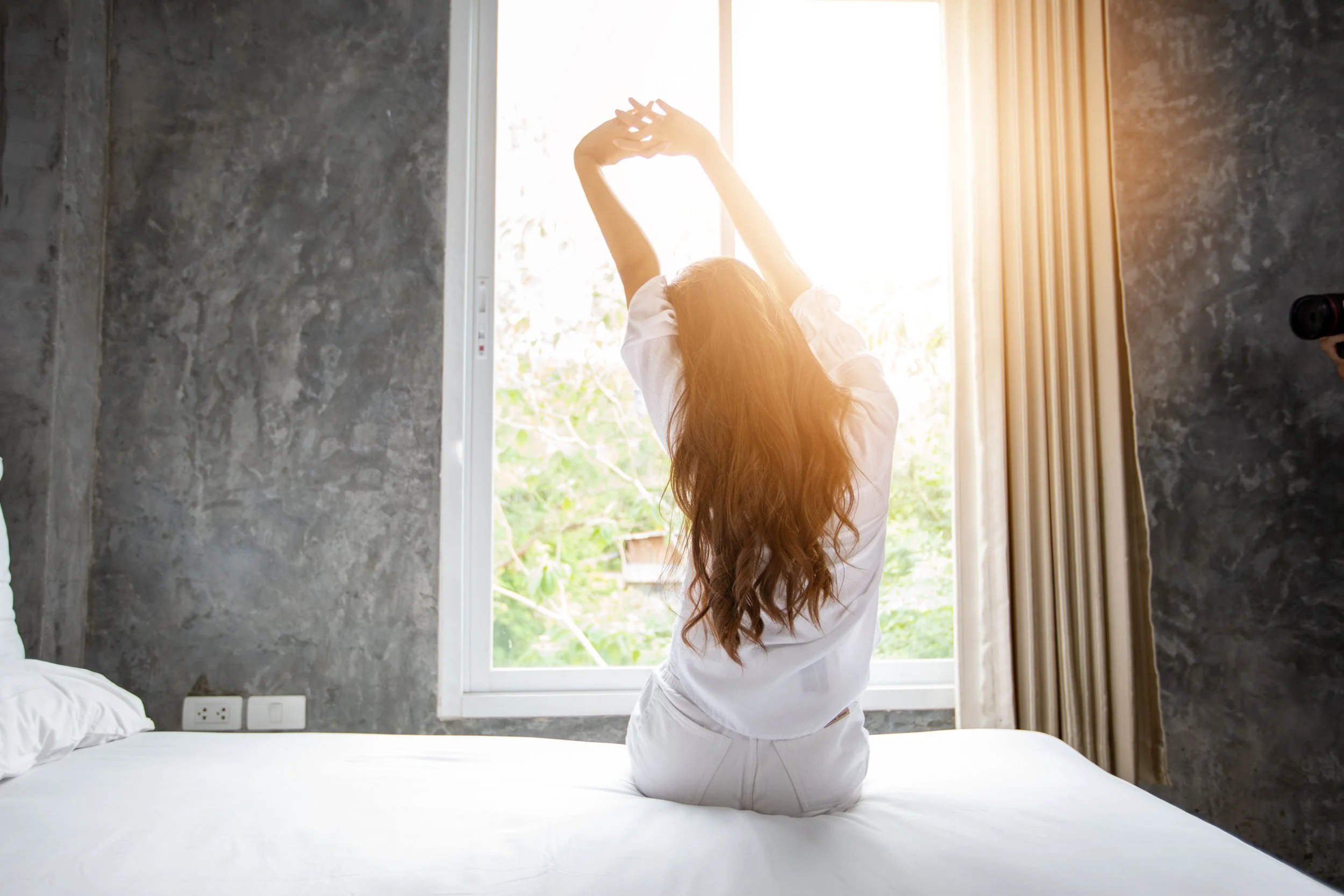PSA:
The End of Daylight Savings is near…
That’s right. In case you haven’t heard, on Nov 7th, 2021, Daylight Savings Time is ending. That means our days are getting “shorter”, and you need to remind yourself to fall back — a.k.a. move your clock backwards an hour — when you go to bed on November 6th.
Fortunately for us, out of the two time changes in the year, this by far is the easiest to adjust to because we essentially gain an hour of sleep. However, if you struggle with sleep already, then any change to your circadian rhythm can pose some challenges.
That’s why I’m sharing my top 5 tips for adapting to the new time so you can “fall back” with ease.
My Top 5 Tips to Help You “Fall Back” to Sleep at the End of Daylight Savings Time
Tip #1
Keep a consistent schedule leading up to the time change.
If you're constantly going to bed and waking up at different times, then the hormones regulating your sleep and awake pattern (your circadian rhythm) are going to be constantly fluctuating — and that’s going to impact your quality and quantity of sleep.
If you have a hard-coded circadian rhythm where your hormones ebb and flow at the same time every day, then keeping a consistent schedule is going to make you better able to sleep well. Plus, you're going to be better-rested going into the time change to begin with.
Tip #2
Spend as much time as possible outdoors on the afternoon of the time change.
You’re essentially going to have to stay up later in order to fall asleep at your “normal time” after the time change. For example, if you normally go to bed at 10:00 PM, then 10:00 PM will now feel like the old 11:00 PM after the time change. It may be challenging for you to stay awake that long, especially if you're already having sleep issues.
By getting outside in the afternoon, the light waves from the sun will send a signal to your brain that it's daytime, triggering your body to produce more cortisol, and hopefully that cortisol will help you to stay up later.
Tip #3
Lay off the booze and carbs while your body adjusts to the new time.
Both alcohol and carbs make us sleepy.
Carbohydrates convert into serotonin which is the precursor to melatonin, the sleepy hormone. If you eat a big spaghetti dinner, then you're going to feel sleepier earlier in the evening. So stick to a dinner that is heavier in protein while your body adjusts to the new time change.
Everyone knows alcohol makes you sleepy. It's a sedative. It also increases your adenosine levels. Adenosine is a chemical our bodies produce while we're awake. This chemical connects to neurons in the brain and inhibits brain function, which makes us sleepy — but it does not help us stay asleep. So instead of having a glass of wine to unwind, drink some herbal tea instead.
For more information on alcohol and its relationship with sleep, check out my blog post Does Alcohol Help You Sleep Better? Debunking the Myth that Alcohol Helps with Sleep.
Tip #4
If your body won't take the extra hour of sleep, try to stay in the dark until the time you want to wake up.
Let’s say you normally wake up at 6:00 AM and that's the time you want to continue waking up going forward after the time change. If you have a very strong body clock, you may start waking up at 5:00 AM after the time change because the new 5:00 AM was the old 6:00 AM.
In order to help your body stay asleep longer, try to stay in a dark room as close to 6:00 AM (or the time you’d like to wake up) as possible. As soon as your eyes are exposed to light, your body will be signaled to produce cortisol — and we're going to want to try to suppress that surge of cortisol as long as possible.
Tip #5
If at first you don’t succeed, try a gradual approach.
If you're finding it hard to stay awake until your normal bedtime, try to push yourself 15 minutes longer every day. You don't have to jump into the new time right away. Instead, you can gradually ease your body into it, especially if you have a very strong circadian rhythm. If you can try to stay awake an extra 15 minutes longer than your body wants to every few days, then by the end of the week, you're going to be acclimated to the new time.
As I mentioned, out of the two time changes, this is by far the easiest to acclimate to. However, if you're struggling, give yourself some grace. It's actually a good thing! It means you have a very strong circadian rhythm.
If you’re one of those folks who have a hard time sleeping regardless of the time or time changes, I am here to help. You can schedule a discovery call right here and we can chat a little bit more about what you're experiencing, and I can talk to you about how I can help. You deserve the rest you need to be your best.
Let’s Get You Sleeping
For more tips, you can check out my sleep blog for more articles and resources. I have a ton of great information to share with you.
Sweet Dreams
Kelly Murray is a certified sleep coach and an award-winning pediatric sleep consultant based in Chicago offering sleep coaching services nationwide.






